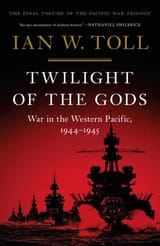Search Results
8/6/2025, 3:28:28 PM
>>17900834
This is dishonestly reductive. Japan was internally willing negotiate peace, but only if their stringent terms were met. More importantly, however, they couldn't even agree of their own peace terms. The war cabinet was evenly split on the "four condition" vs "one condition" policy, with the former stating, in addition to retaining the emperor's status, that Japan would only surrender if 1. Japan would disarm its own forces; 2. Japan would conduct any war crimes trials of its own nationals; and 3. there would be no occupation of Japan.
This would have been analogous to a spree killer being allowed to pack up his guns, get in his vehicle, and drive home without the police pursuing or any subsequent legal prosecution. Nippon was greedy and they paid for it.
This is dishonestly reductive. Japan was internally willing negotiate peace, but only if their stringent terms were met. More importantly, however, they couldn't even agree of their own peace terms. The war cabinet was evenly split on the "four condition" vs "one condition" policy, with the former stating, in addition to retaining the emperor's status, that Japan would only surrender if 1. Japan would disarm its own forces; 2. Japan would conduct any war crimes trials of its own nationals; and 3. there would be no occupation of Japan.
This would have been analogous to a spree killer being allowed to pack up his guns, get in his vehicle, and drive home without the police pursuing or any subsequent legal prosecution. Nippon was greedy and they paid for it.
Page 1
